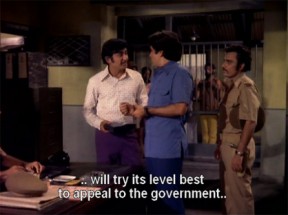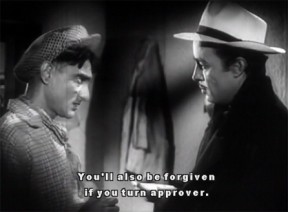There is something quite charming about the Indian use of English, something quite contagious about the wonderful Hinglish used in India that is something between Hindi and English. Before I entered into the Office English of India, I was content to muddle along in India speaking a mix of English, Hindi, hand signals and head wobbles. I quickly adopted such usages as tagging words with “Walla” or “Walli” depending on the gender of the item being discussed.
Walla is a word you can throw into almost any casual conversation. For example if you are shopping and need the shopkeeper to give you something from the lower shelf and he can’t understand your English, Hindi Head Wobble, then you point at the said item and say “Neeche walla” meaning “down there.” When he hands you the jumbo sized version of the said item you can insist on a “Chota walla” version of the same thing. Then you can hail an auto walla.
This is a lot easier to do in Delhi if you are white. Auto wallas zero in on us “goris” (pale skinned females) like heat seeing missiles in their never ending attempt to treble their incomes in one city block. Having induced the auto walla to stop, you then have to pretend that you couldn’t care less about whether you get to your destination or not, casually and with your body pointed towards the next auto hovering hopefully…you will tell them where you wish to go. They then quote the most ridiculous price to which you reply “Arre Baba! Kya tumhe mein Laxmi jaisi dikhti hun?”
I have no idea what “arre” means but I am pretty sure it’s an exclamation of frustration, the rest means “Do you think I look like the goddess of wealth?” While my years of traveling have given me quite a robust street vocabulary, the language of business is another dialect altogether. Office language is a wonderful masala of left over Britishisms and more modern version of English that involves the usage of five words when one or two words will do. For a wordsmith who is often paid by the word, Office English seems like the Aladdin’s cave of cashola or maybe I should say cash walli?
“Doing the needful” is the most famous of all Britishisms in Hinglish, the meaning of which is quite obvious. Its a polite version of “Get back to us or we will sue you.” It means, “Get your act together and do what we have waited almost six months to a year for you to do.” It’s a totally non threatening phrase which is also it’s downfall because the phrase has fallen into the black hole of meaninglessness. Should you require a foreigner to do the needful, they will be so charmed by the quaint English usage that they will overlook the needful that needs doing and drift off into some colonial wet dream of the India that was. If you require an Indian to Do the Needful, the phrase is not loaded with enough urgency or threat to encourage the needful into the field of action and so will be totally ignored.
This is the real reason cell phones are so cheap and easily available to all in India, you have to follow up every letter written in English with a phone call and harass the hell out of those Office Wallas whom you require to do the needful. With a bit of luck, someone will eventually REVERT. This means “get back” or “respond” or in some way answer your query, sometimes they will revert back which is a double whammy. When I mentioned this to a colleague she theorized that ‘reverting’ was particular to Delhi people, so I emailed a friend in Mumbai to check if there is any reverting going on down there and Till Date am waiting for her to revert.
“Till date” is not just used in the office but also in the media. Till Date means up until the date the words Till Date were written, printed or published. The subtext of Till Date means the information you are reading or hearing could very well be obsolete. Things change as slowly as a century here or else in the space of a heartbeat. Time is fluid in the land where the ancient sages reached out to sketch the shape of eternity with poetic words.
Tomorrow and Yesterday are the same word in Hindi and only the present moment is taken seriously, but not too seriously as this too will pass. The other day I asked my office boy if he had sent a file to his boss. The file had taken some locating because he had hidden it in a bewildering maze of folders and sub folders and labelled it as “Printables.” I hesitate to correct his Hinglish while he is still coming to terms with my crazy Kiwi accent with my dented “e’s” and mysterious vowel usage, God only knows what kind of confusion that could lead to! I simply requested him to do the needful than logged into his email to follow up.
His email to his boss went like this “Sir, as per the Conversation with you, the list of programs will be on your desk today itself only.” The “itself” part of his sentence possibly refers to the fact that items have a gender here. So a desk could either be male or female, if the gender is unknown then it becomes an itself, at least in the mind of my office boy. “Only” is a word liberally attached to particular sentences. I am not sure where that comes from but I would image that there is a corresponding use of the Hindi word for “only” and that within the context of a sentence in Hindi, the use is perfectly acceptable. Yesterday I was arranging with a friend for her “Massage Walli” to come to my house.
She gave me a choice of appointment times and said that the Massage Walli may come earlier than arranged, I assured her that this was fine, that I was “HERE ONLY”, meaning that I would be home all afternoon. I smiled to myself when I hear that come out of my mouth. Yes! Another Indianism under my belt! While I sometimes hit that blank brick wall of understanding when confronted with yet another liberal and poetic use of English in India, I totally appreciate the fluid approach to stretching and bending and arranging English into a shape that is particular to the locality. India is a lover of literature and languages, there are HOW MANY official languages in India with a thousand different dialects, a billion different local slangs. I applaud any attempt to turn the English language into a more poetic or polite form. I call it Word Smithing, they are smithing the so called precious metal of English in Hinglish and They are Like This Only.
Dianne Sharma-Winter is a freelance writer living between India and New Zealand. She writes on travel, culture and humour using India as her muse.








This is great fun! May we have some more please?
ha ha, lovely. I have a list of Indianisms in my cross- cultural training courses. This will be a great addition. 🙂
Thanks for asking Rupa, there is plenty more where that came from! Maybe I will post a series of being lost in translation behind my desk?
Love it !!
That would be lovely. Can’t wait!
This was a lovely read! Only someone from ‘out of country’ could make such astute observations 😉
Thanks Marilyn and Vidhi! There is plenty more where that came from!
Very enjoyable read! One of my favorite Indianisms is “Passing Out” for graduating from college 😉
One of my friends said that until he left the country, he really though that a lot of his wordsmithery was Proper English but now he “knows our minds” he won’t make that mistake again!